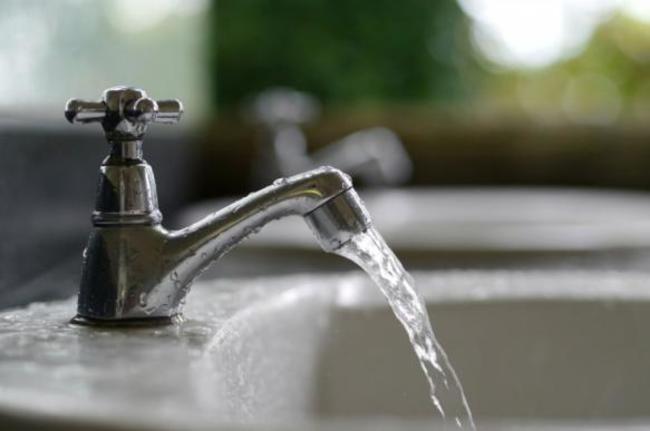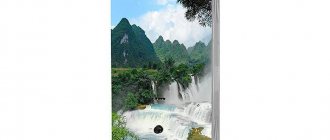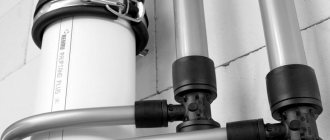Hot water and heating should be available in every apartment building. But simply their presence is not always enough; services must be provided at a high level. If the services are of high quality, this will be the key to a normal life and safety.
There are sanitary standards; hot water must be provided in accordance with them . It is worth seriously thinking about whether the water temperature in your apartment complies with SanPiN standards.
Unfortunately, for many consumers, the water temperature is not always appropriate. This leads to a number of inconveniences and can also create health risks for residents . That is why it is worth taking such problems seriously.
ATTENTION! Negative consequences can affect your life. If you do not pay attention to the problem, the perpetrators will not bear any responsibility.
Anatoly Koshurnikov, director of the Sminex comfort department, answers:
You can measure the water temperature yourself.
According to the standard (SanPiN 2.1.4.2496-09 “Hygienic requirements for ensuring the safety of hot water supply systems. Amendment to SanPiN 2.1.4.1074-01”), the hot water temperature must be at least 60 °C for a closed heating system and 50 °C for an open one . If the indicator is lower, the fact of non-compliance with the standard must be recorded. To do this, submit a claim application to the dispatch service. If this is a temporary situation, the dispatcher reports the cause and time of elimination of the accident. If there is no emergency, the applicant has the right to call a specialist to take measurements and record the violation. The verification must be carried out within no more than two hours from the date of submission of the application. Next, based on the results of measurements, a report is drawn up in two copies. If the test results prove that the hot water temperature is below the standard, the utility service provider recalculates for the short supply of hot water supply services. When the hot water temperature is below 40 °C, water heating is not charged.
How to install or change the meter?
Do utility debts prevent you from installing meters?
If the test results show that the temperature complies with the standard, but the applicant does not agree with this, an independent examination can be carried out. The management company is notified in writing about the date of its holding, its results are also recorded in the act.
As for meters, there are special metering devices (for example, VIS.T-TS) that record data on the volume of heat energy (gigacalories received) spent on heating cold water to provide hot water supply services. But it is extremely difficult to use the data from these meters in a dispute with the management company: payments for the received water supply are, by law, carried out in cubic meters, which are in no way tied to the amount of heat transferred.
What to do if the temperature is not correct?
It is important for consumers to know exactly where to turn and what to do if the temperature standard has serious deviations.
First, you just need to call the control room of the management company or housing and communal services and report that the water is at an inappropriate temperature. After all, this could happen due to a network failure.
In this case, the dispatcher will inform you about the time frame for the problems to be resolved. But if there are no accidents, then the employee must accept the application .
ATTENTION! When contacting the relevant services, note the application number for yourself, and also write down the name of the employee who came to you. This is necessary so that misunderstandings do not arise later.
If the reasons for the temperature not meeting the standards are not known, then the management company must take measurements . This is necessary in order to really find out whether the temperature regime was violated or not.
The organization must send you an employee who will take testimony and draw up the necessary report. According to this act, if the temperature is set too low, you can receive a recalculation .
It is important to understand that the organization must competently fulfill its obligations. Otherwise, she may receive a fine, since her activities are controlled by other services.
We recommend reading the article about complaints due to cold water
Representatives of the Etalon Group press service respond:
You won't be able to avoid paying for hot water at all. To receive compensation, it is necessary to record the fact that services were not received in full. Simply put, call a technical specialist from the management organization, who will draw up a report on the non-compliance of hot water with standards. This must be done at least two or three times in order to prove that your problem is not an accident or an emergency situation caused, for example, by an accident. If you receive several reports, you must contact the management organization to submit an application for further recalculation and restoration of the proper water temperature.
A meter with a temperature sensor exists, but it may be difficult to register the device. Not all management organizations accept electronic water meters for operation, although the possibility of using such devices is provided for by law.
Installation of water meters: pros and cons, procedure
How to save water on water?
We measure water
If you simply say that the temperature of the hot water supply does not correspond to the norm, then it will not bear any fruit.
You need to call the employees of the company that provides your home to your apartment. There are situations when problems are noted with the boiler room, or there are some problems at the entrance to the house.
Temperatures that are too low must be confirmed by an employee of the organization . To do this, he will take measurements using modern equipment. For reliability, measurements should be carried out in several places where water is collected .
When using water supply, you need to wait a couple of minutes until the water reaches nominal values. It is not recommended to take measurements until this point.
In order for a specialist to come to you, you need to leave an application with the management company or housing and communal services. After the inspection is carried out, make sure that the employee draws up a report . It is this paper that will become the basis for troubleshooting and recalculation.
It’s worth understanding exactly how the measurement is made:
- First, a special glass is placed under the stream of water.
- A thermometer is placed in the collected liquid to the required mark.
- You need to wait until the thermometer readings become accurate.
- The readings are recorded.
- Signatures are added.
- One copy remains with the home owner for further action.
The director of the legal service “Unified Center for Protection” (edin.center) Konstantin Bobrov answers:
It is not possible to avoid paying for poor-quality hot water supply at all; the law does not provide for such an option. In this case, you need to contact the emergency dispatch service and agree on a time to draw up a report on the provision of utility services of inadequate quality. This document will be drawn up in your presence, you must sign. It will indicate specific violations committed by the contractor.
If you and the contractor do not come to a common opinion regarding the identified violations, then you need to agree on a re-evaluation of the quality of utility services. Moreover, it will be carried out in the presence of an employee of Rospotrebnadzor and a representative of the State Housing Inspectorate.
The drawn up act will become the basis for recalculating fees for utility services, as well as for charging a penalty to the contractor. Upon receipt, the issue is resolved through a claim, and, if necessary, in court.
Standards for water supply to apartments
The water temperature in houses must comply with GOST , this is not considered a luxury, it is the norm. Hot water is an important component of every person's life.
But it often happens that the utility service does not fulfill its obligations and does not provide the required heating of water in the system. You need to understand that all utilities services are paid for by residents in full .
That is why you have full rights to put forward appropriate demands. Many residents wonder why such violations are observed.
ATTENTION! It is important to understand that the lack of water heating represents a lot of inconvenience in everyday life. You pay money for emptiness, because hot water is included in the receipts.
Every resident of a high-rise building knows that hot water costs several times more than cold water . That is why many people do not want to overpay for low-quality services.
At the same time, today there are meters almost everywhere. This is convenient - people use as much hot water as they need and, if necessary, dilute it with cold water. If you use less hot water, you won’t have to pay much. But if initially not hot, but warm water comes from the tap, then this causes great inconvenience .
But in this case, residents still pay for water as for hot water. Therefore, it is worth knowing the temperature of what hot water should be. In such a situation, you don’t want to overpay for anything, but an unreasonable fee is not the biggest problem.
It is worth mentioning the more serious risks that consumers have to face. Water that is not supplied in accordance with the parameters can cause health problems .
Especially in such an apartment, people with weakened immune systems may suffer . Both in our country and in others, legislative documents have been developed that determine the water temperature in the apartment. If you focus on these requirements for water in apartments, then the quality of water supply will be high.
Is it legal to charge
Current legislation and the rules of contractual relations establish that money can only be charged for services actually provided. Therefore, the amount of payment for hot water supply during a planned long break is reduced by this amount.
The legislator has established the permissible duration of non-provision of hot water:
Dear readers! To solve your problem right now, get a free consultation
— contact the lawyer on duty in the online chat on the right or call: +7 (499) 938 6124 — Moscow and region.
+7 (812) 425 6761 — St. Petersburg and region. 8 (800) 350 8362 - Other regions of the Russian Federation You will not need to waste your time and nerves
- an experienced lawyer will solve all your problems!
- a total of 8 hours per month;
- no more than 4 hours at a time;
- 24 hours in case of an accident on the highway.
The maximum duration of a hot water supply interruption in summer can be two weeks. If repair work is delayed, the issue of payment arises. It is produced for the entire time the resource is unavailable.
The issue of charging may arise not only among residents who have not provided their water supply systems with meters. If they are available, the citizen independently transmits meter readings and controls the correctness of their reflection in receipts. But when cold water flows from both taps and the meter turns to hot, the fee must also be recalculated. To avoid such situations, it is better to turn off the riser during breaks.
IMPORTANT! If there are no meters, then charges are made according to the standard depending on the number of persons registered in the living space.
How can a water heater help?
It is possible that the answer to the question: why cold water runs instead of hot water and what to do in such a situation will be the transition to an autonomous water supply. That is, installing an electric boiler.
The heating device consumes a moderate amount of energy. With low consumption of heated liquid, its maintenance will cost the same as a centralized hot water supply. The volume of the tank is limited to a certain displacement, so when the heated H2O is completely drained from the tank, you have to wait until the next batch of water resource is heated.
One caveat. If there is no hot water metering device, you must install a plug on the riser, officially sealing it. Otherwise, bills for use will continue to arrive. Having a meter is another matter. There is no need to plug the pipe or put a seal. It is enough to close the valve at the inlet and make sure that the liquid medium from the electric boiler does not enter the system.
What explains this non-compliance with standards?
There are a number of explanations for a problem so familiar to all Russians. Among the main ones:
- increased concentration of polluting particles in the heat exchanger (a device in which heat is exchanged between two environments that differ in temperature);
- direct failure of this technical unit;
- rust that has clogged the internal cavity of the pipeline;
- corrosion that occurs inside risers.
In addition, the possible shutdown of the heat exchange device in the house cannot be ruled out. As a rule, the need for deactivation arises during repair work or emergency situations at external points of the pipeline.
Proposed changes in standards for the provision of hot water supply services
Recently, Rospotrebnadzor has been actively discussing the issue of reducing the temperature standard for hot water supply from 60 to 50 degrees.
In this case, two options are proposed to solve the problem in order to save energy:
- The first option is to use special disinfectants for high-quality water purification, instead of heating. At the same time, experts assure that consumers will not become infected, since this is a more effective way to improve the quality of water supplied to apartments.
- The second option under consideration is lowering the water temperature to 50 degrees constantly and heating it to +70 degrees only once a day. According to experts, when offering such a measure of thermal disinfection, it is more effective, and this is proven by world experience, since many countries around the world use exactly this option for purifying water from bacteria living in it. To avoid accidental thermal injuries among consumers, heating to high temperatures is proposed to be done at night.
There are, of course, ardent opponents of such changes, who operate on the following quite fair considerations:
- Firstly, they believe, it is still necessary to take into account the opinion of the consumers themselves on this issue, since the changes will primarily affect their comfort and the amount of payment for the services provided (it seems that although the lower limit of heating will be lowered, the cost of the service will not be reduced will follow).
- Secondly, given, unfortunately, the current approach in the Russian public utilities sector to various changes, it is necessary to be prepared to obtain output parameters that will be below the established standards, since even today they are not always met. For example, if we are talking about reducing the heating level of hot water to 50 degrees, then in practice it is quite possible to get no more than 40÷45 degrees at the output, which is already “out of the question.” And discounts for such temperatures, taking into account the permissible 3 degrees of deviation, will turn out to be completely ridiculous. In short, the consumer is again the loser.
- Thirdly, the practice of functioning of the Russian housing and communal services does not allow us to be sure that in all municipalities without exception, high-quality purification of cold water will be carried out before heating it. Well, this may well lead to an increase in the likelihood of various infectious diseases. Therefore, opponents of the initiatives under discussion believe that in the conditions of the Russian communal system, only thermal treatment of water supplied to apartments is a truly effective method of disinfection in modern realities.
As of today, the previously developed standards are still in effect, while new ones were planned to be introduced in March 2021, but so far there is no official confirmation or refutation in this matter. It is known, however, that such an idea has not yet received approval from the Government of the Russian Federation. But who knows, maybe this will happen someday if alternative proposals that have long been adapted in our public utilities are not heard.
Video - What should be the temperature of hot water in the tap
What is the importance of temperature standards for hot water supply?
Controlling the temperature of hot water supply is important, as mentioned above, not only for economic reasons, but also from the standpoint of preserving the health of residents, which is especially true for children and people with disabilities or chronic diseases. Therefore, water temperature indicators should not exceed the permissible threshold or be below normal.
Normal hot water temperature, within the established range, is not only a matter of comfort, but also ensuring the sanitary safety of residents
- The first thing to consider is that the temperature can often be not only low, but also exceed established standards, and this creates a considerable risk of burns. To eliminate the possibility of such damage, mixers are installed, with the help of which the desired water temperature is adjusted. Each user should remember what temperatures and how they can affect human skin:
— +50°C – partial burns are possible with exposure duration of 90 seconds or more;
— +55°C – the same situation, but the burn occurs in 15 seconds;
— +60°C – likely thermal damage to the skin when exposed for 5 seconds;
— +65°C – severe skin burn in 2 seconds;
— +70°C – immediate severe and deep burn of the skin and adjacent tissues.
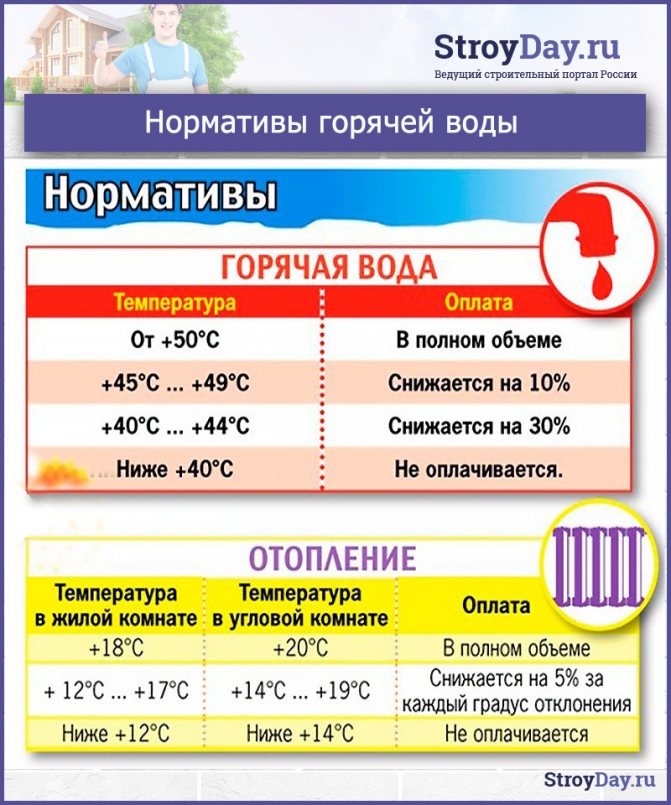
Hot water standards
This information must be taken into account if there is a small child in the apartment - you should consider eliminating the possibility of his uncontrolled access to hot water taps.
Expert opinion: Masalsky A.V.
Editor of the “construction” category on the Stroyday.ru portal. Specialist in engineering systems and drainage.
A low temperature of the incoming “hot” water is not only its excessive consumption and other household inconveniences, but also a prerequisite for the emergence of a number of other unpleasant situations. In particular, in the closed space of pipes, when the temperature established by the standards decreases, a favorable environment is created for the appearance and reproduction of various bacteria that can cause temporary intoxication or even acute or chronic diseases in humans.
A typical representative of such pathogenic microflora is the Legionella bacterium, whose favorable habitat, development and reproduction is precisely warm fresh water. This microorganism is a gram-negative rod, no more than 3 microns in size.
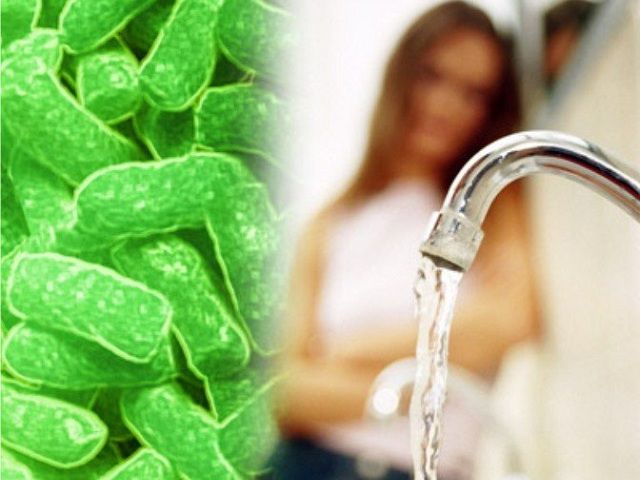
Insufficient heating of water in the hot water supply system can lead to the rapid development of legionella colonies in pipes or boilers - a bacteria extremely dangerous to human health.
These microorganisms thrive in warm water and also readily settle in air conditioners and low-temperature heating systems. Legionella can cause various diseases, including lung infections and pneumonia with associated complications. This bacterium can enter the human body during a bath, shower, when washing or brushing teeth, as well as when eating food from dishes that were washed with insufficiently heated water.
Find out useful recommendations on which water filter to choose for your sink from a new article on our portal.
If the water meets the standards, then it is heated to higher temperatures, which minimizes the risk of infection to consumers. Thus, water heated to 80÷90 degrees in boiler houses of the central water supply practically undergoes a process of complete thermal disinfection.
The effect of temperature on the pathogenic microorganism discussed above looks approximately as follows:
— Water below +20˚С: the bacterium is inactive - it does not reproduce, but it does not die.
— +25÷45˚С: the most favorable temperature for the development and reproduction of legionella.
— +55˚С: if this temperature is continuously maintained, then these microorganisms die in 5–6 hours.
— +60˚С: the death of the entire colony of bacteria occurs within 30÷35 minutes.
— +65˚С — legionella dies within 2 minutes.
— +70÷80˚С: this range can already be considered the area of thermal disinfection of water.
The management authority is obliged to make a recalculation if the consumer complies with the norms of RF PP No. 354
The Supreme Court of the Russian Federation confirmed the legality of the application by management organizations and HOAs of clause 86 of the RF PP No. 354 if a consumer applied to them with a request to make a recalculation for the period of his absence.
The presence of an apartment inspection report, which confirms the impossibility of installing metering devices, still remains a key condition for making a recalculation for the time the applicant does not live in the apartment.
It is important for the applicant to comply with the terms of submission of documents: before departure or within 30 days after returning to the apartment (clause 91 of the RF PP No. 354). The legality of this provision was also confirmed by the RF Armed Forces.
If the requirements of Section VIII of RF PP No. 354 are met, then the management authority or HOA does not have the right to refuse the consumer a recalculation, which must be done within five working days from the date of submission of the application.
Thermal sensor in a measuring device
A good device that allows you to reduce the cost of heated liquid. It actually records H2O corresponding to certain indicators. The unit separately takes into account the amount of actually hot water resource and what is supplied from the hot water tap, but does not correspond to the temperature required by the standards.
Floor-standing dispenser AquaPro 6207CH (cooling/heating/room temp.)
Wall-mounted dispenser AquaPro 3207CH (cooling/heating)
Aeration column AS-0844 VO-90
The volume that was not heated to the required t will be added to the cold water supply and paid at the established cost for this category of services.
Of course, using a temperature meter offers tangible benefits, but also causes some inconvenience. Thus, according to the law, automatic recalculation is prohibited. That is, the owner will have to invite a representative of the management company, who will carry out control measurements and draw up the necessary document confirming the fact of the violation. It won't be faster.
In addition, the purchased and installed device must be pre-sealed and put into operation. Again, this cannot be done without the assistance of a management company employee.
And one more unpleasant moment (from an ethical point of view). By counting the heated liquid at the price of hot water, the apartment owner shifts the responsibility to pay for this “discounted” volume of hot water to other residents. Since the expense goes to general house needs.
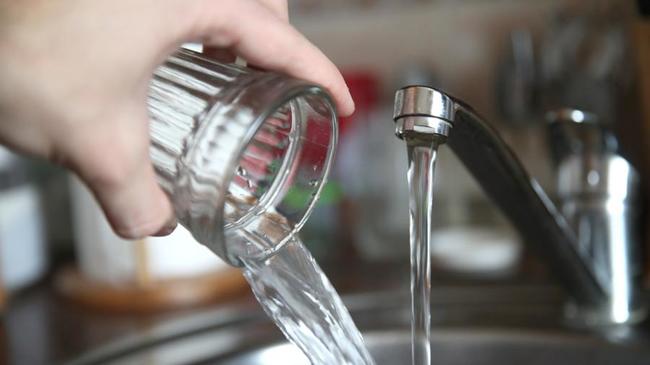
Why is there lukewarm water instead of hot?
Next, it is necessary to consider the reasons why existing standards are not respected.
First of all, problems with hot water supply may be in the house itself. Design defects, as an option, contribute to poor circulation (in the morning, apartment owners on the upper levels have to drain the liquid that has cooled overnight in the pipes for a long time).
Making mistakes in the process of regulating the heated supply. When the management organization provides insufficient heating of the water resource supplied to consumers.
A clogged or deformed pipeline in the apartment on the floor below. This, for example, happens due to the insertion of a “gander” in order to recess the pipe into the wall and free up additional space in the bathroom.
The cause may also be violations committed during the installation of an electric boiler (mixer, shower stall, etc.) along the riser.
Successful resolution of the above problems is quite possible by contacting the management company to which the residential building is attached.
It is much worse when the discrepancy between the temperature conditions of the supplied liquid medium does not directly affect the house. For example, the building is located at the very end of a water supply branch. The heated H2O first enters other high-rise buildings and only then reaches the end point. If the line is not looped, the last house on it becomes a dead end. The tap liquid cools completely overnight, and often does not heat up at all to the required temperature.
In this situation, the management organization is powerless. Activities for transferring hot water supply are very expensive. In addition, they affect not only the area accountable to a specific management company.
It will not be possible to solve the problem at this level even in the event of emergency situations outside the home system. The UO, again, will not be able to do anything. City authorities are already dealing with similar issues. And to demand that they fulfill their obligations is, to put it mildly, difficult.
